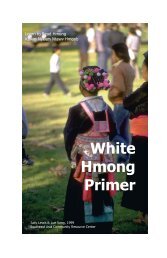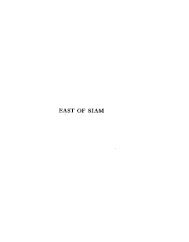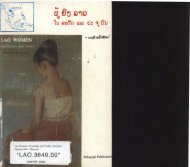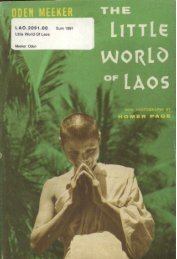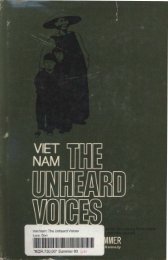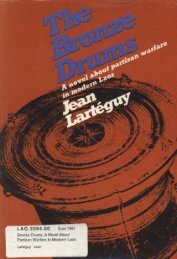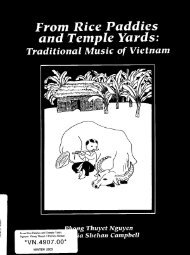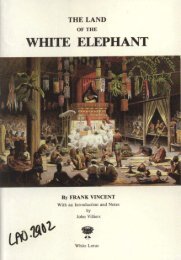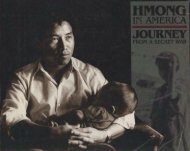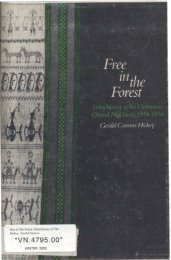PEOPLE
Grant, The Boat People - Refugee Educators' Network
Grant, The Boat People - Refugee Educators' Network
- No tags were found...
You also want an ePaper? Increase the reach of your titles
YUMPU automatically turns print PDFs into web optimized ePapers that Google loves.
The Boas Aople<br />
from all that made their past lives unbearable. Now the future nat- :<br />
rows to a choice between R few small lodgings and a few probably ,<br />
not very inviting jobs, For many an immigrant what matters is less :<br />
the respective merits of the jobs that are offered than the need m<br />
ensure that they are well placed to catch the ideal oppomnity when<br />
it presents itself. 'They are afraid of the future,'says a France Tern '<br />
d'Asile organiztr. 'One of the signs is that they all wmnt to stay in .<br />
Park. Thc idea of being sent to the provinces frightens them. They .<br />
will tell you they have friends in Paris even if it isn't true.' Perhapu ,<br />
in the back of some minds the provinces are associ~ted with rteduation<br />
camps, enforced agricultutal labour, the brutal evacuation of<br />
Phnom Penh by the Khmer Rouge. But Paris in preferred chiefly ,<br />
because there it is possible to lead an indefinitely provisional life, ,<br />
where new identitits do not become fixed for lack of choice.<br />
Waiting in line for the caftttria in the transit centres at Creteil,<br />
a southern suburb of Paris, is a 24-year-old chemistry student. His<br />
family paid for him to make the journey alone by boat, 'I want to<br />
continue my studies,' he says, 'I had the addresses of friends here ,<br />
in Paris who would help me. But the piratts took everything. Now<br />
I am vying to find my friends. Perhaps in a few days I shall succeed.'<br />
A true story, or another ploy to stay on in thc capital?<br />
The prevailing feeling among the refugees is that they will not<br />
see their homeland again, They are eager to adapt themselvm to<br />
French ways, but their ethnic ties remain strong. Their cxpcritnce<br />
may have brought them resignation, patience and tolerance, but it<br />
has not levelled differences of origin and class. There is no mife<br />
between the different national groups in the mnsit centres, but hey<br />
pass one another without a sign of recognition, A French official at<br />
Cretei! says: 'If you an? understand a Cambdian and ask a Vianamese<br />
to mnslate for you, he won't even answer; he'll just turn his<br />
back!<br />
So far, France has assimilated 61 000 South-East Asians with<br />
rcmarkably few outward signs of tension. It is not a large enough<br />
minority to stir the racist resentment th~t surrounds the 1 400 000<br />
north African immigrants. The plight of the boat people brought<br />
offers of help flooding in from all parts of the country. But many<br />
a generous impulse was found to be impractical when it was sounded<br />
out. French families could offer a roof for a time, but not languagt<br />
classes and help in finding a job. Somc rural communes that have<br />
been working hard for months to prepare a home and a livelihd<br />
for rr bat family may k disappointed when the project gets properly<br />
under way. The refugees art frightened of isolation and, however<br />
kind their French hosts arc, they want to be in a community of their<br />
own people,<br />
Every variation of fortune is to be found among France's Indo-<br />
Chinese population. Somc arc happily integrated shopkeepers,<br />
restaurant-owners and workers, with children doing well at lyotcs<br />
and universities. Others drift miserably in a world too busy or uncaring<br />
to make room for them.<br />
A 33-year-old Cambodian woman, Bun Vandy, whose husband<br />
was killed by the Khmer Rouge, told the m~gazine Paris-Match:<br />
'Paris is admirable. But in main ways it is a city of loneliness and<br />
ghosts, It is not very easy to make contact with people, There is a<br />
distunce between the whites and dto yellows. It is not very easy for<br />
you to understand us, You know us so little! Bun Vandy tseaped<br />
~'ithout her family and is now involved in the tong process of geaing<br />
them over to join her, She has moved through a long series of jobs<br />
and lives with her Il-year-old son in one tiny room where he has<br />
to sleep on a windowsill.<br />
She has met both great generosity and sharp hostility and<br />
describes htr expcticnm of exile up to now as alternately frightening<br />
and farcical. 'Put an average Frenchwoman in a Charlie Chaplin<br />
film and add Auschwitz and you would have some idea of our situationishe<br />
says. She still yearns for her country. 'If South-East Asia<br />
was at peace, if there were no hatred, if there were something to eat,<br />
not a single penon would hve wanted to leave. And it is you who<br />
would come to us and you would not leave.' Of France, she says:<br />
Whcn you Pome down to it thcre are very few red racists. Then arc just<br />
people whce habits hnve ken disturbtd. Wc are I dimrbancc. lht'~<br />
the<br />
word. Bemuse we show you in 4 terrible way how fragile the world we live<br />
in is. . . Ym didn't really know this, in your skin, in your life, in every sccond<br />
of your life. You knew it, hut in r theoretical way. The massam of the Jews<br />
was your first warning. We Ire your second warning. I think it i5 the list. . .<br />
Canada<br />
'A haven for the homrlcss' is how government literature describer




